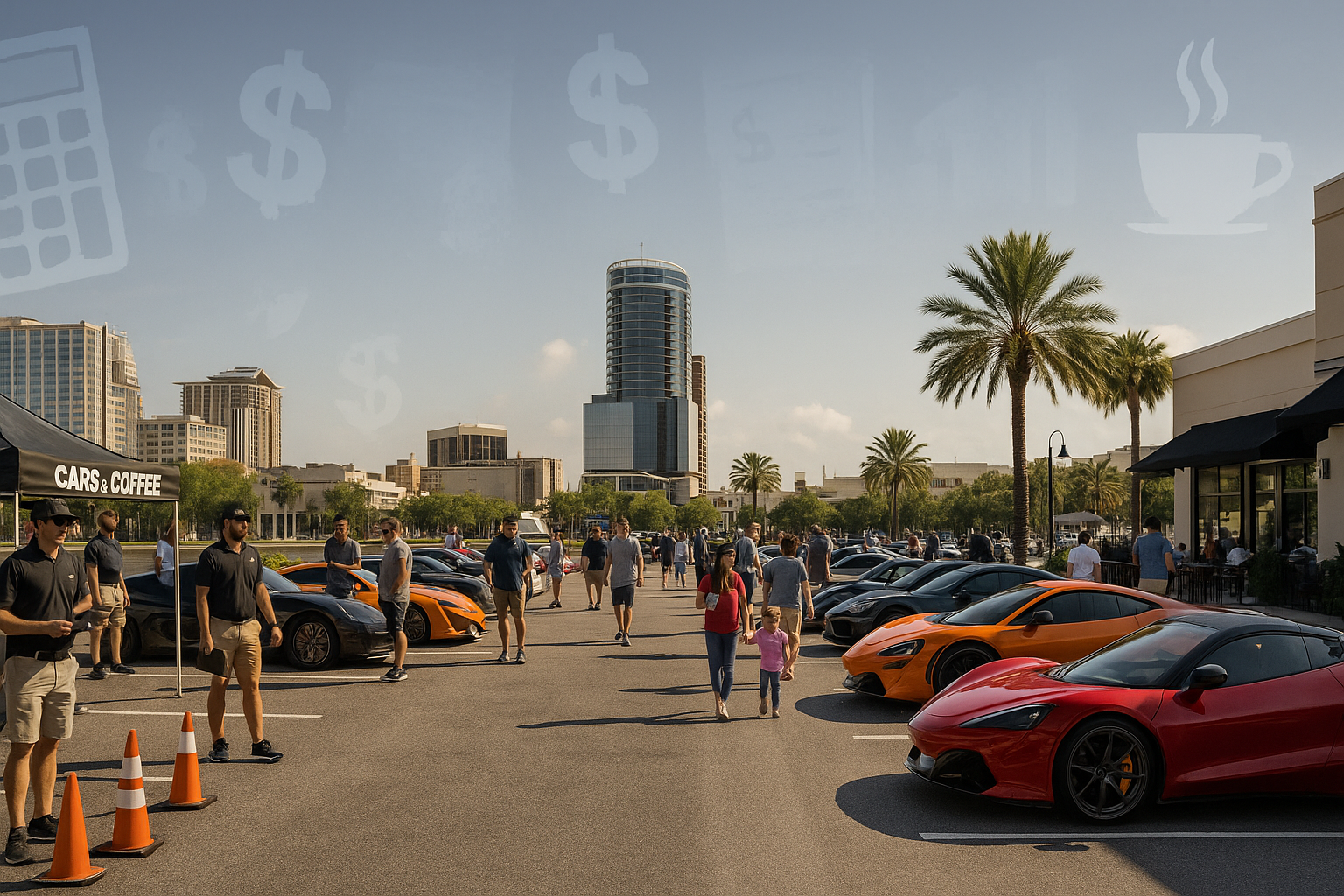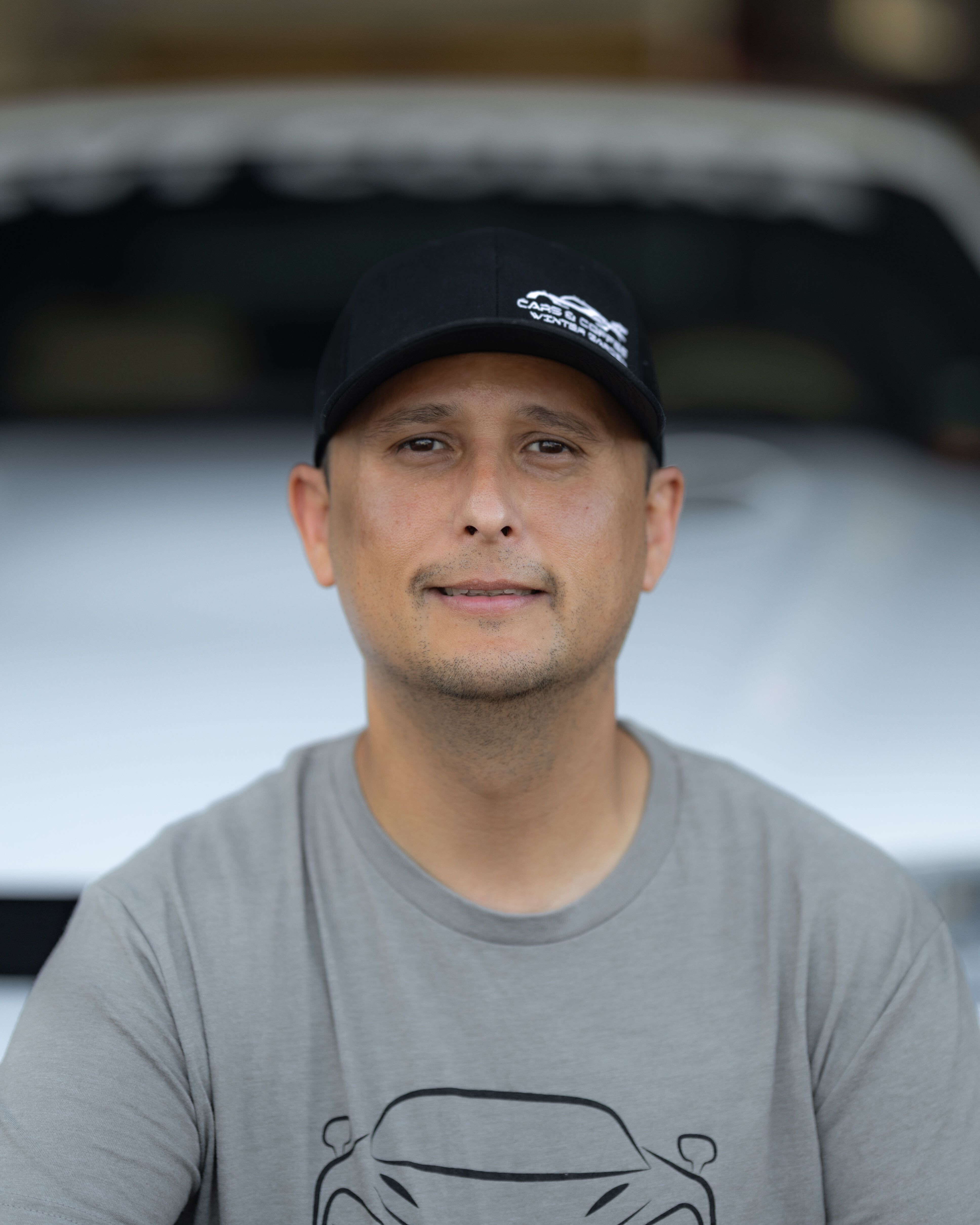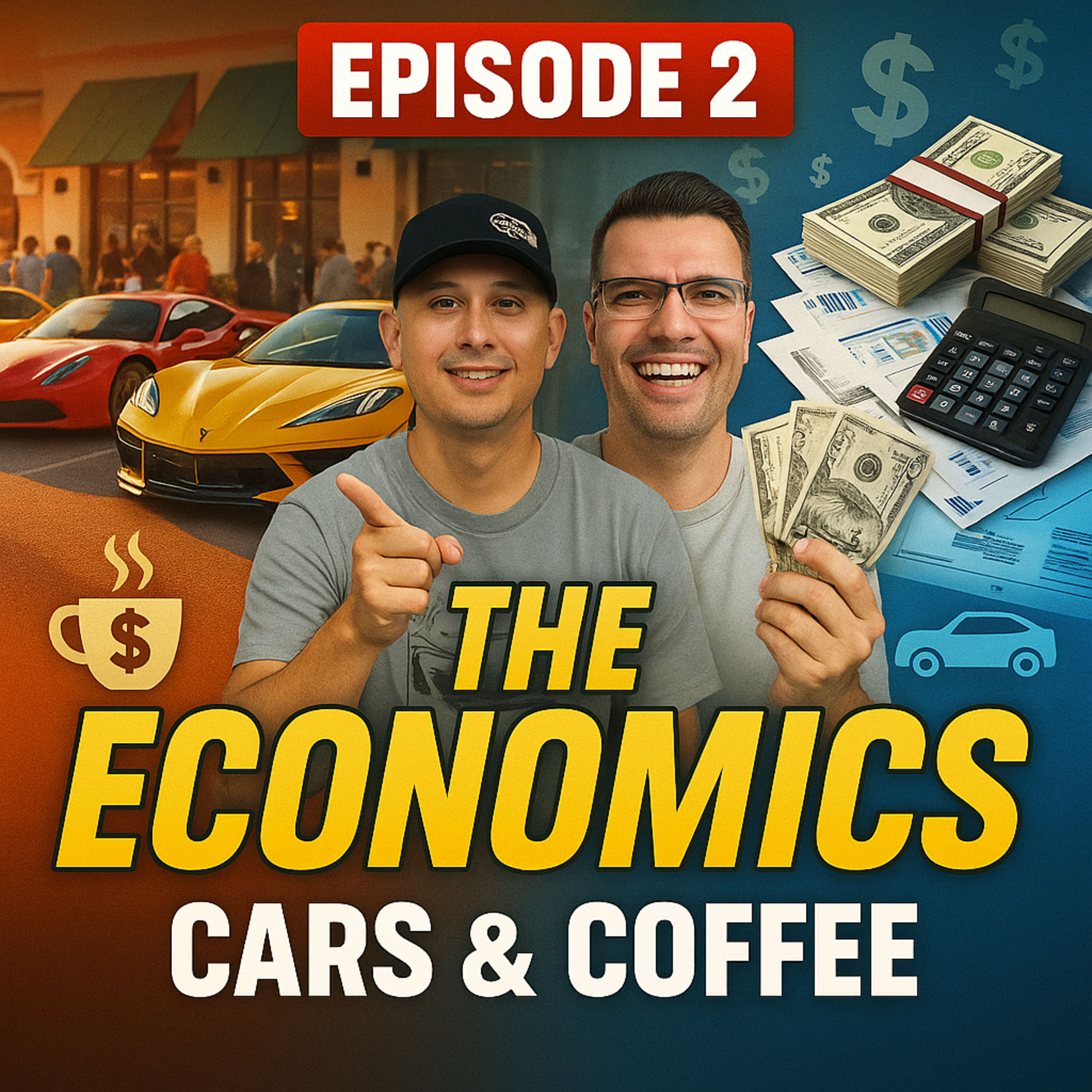The Ultimate Guide to Starting a Profitable Cars & Coffee Event: Lessons from Orlando's Top Organizers

The Ultimate Guide to Starting a Profitable Cars & Coffee Event: Lessons from Orlando's Top Organizers
Starting a cars and coffee event seems straightforward until you dive into the reality of permits, insurance, police coordination, and community drama. What begins as a simple idea to gather fellow car enthusiasts quickly evolves into a complex business operation requiring strategic planning, significant investment, and diplomatic skills.
In the latest Cars & Coffee Podcast episode, successful event organizers Arnold and Hector reveal the complete roadmap for launching automotive events that can generate over $1,000 in single-day revenue while building lasting communities around shared automotive passion.
The Foundation: From Facebook Page to LLC
The journey begins simply enough with social media strategy. Arnold's proven three-step formula for initial event promotion includes:
- Create a Facebook page for your event brand
- Establish a group within that page for community building
- Generate public events that Facebook's algorithm promotes to car enthusiasts within 100 miles
This organic reach strategy leverages Facebook's sophisticated targeting system, which identifies users interested in automotive content and car meets in your geographic area. The viral effect occurs when attendees mark themselves as "going," displaying the event to their entire social network.
However, sustainable growth requires formal business structure. Hector's Winter Garden Cars & Coffee operates as an LLC, enabling legitimate business operations including:
- Sponsor relationships with automotive businesses
- Merchandise sales generating $1,000+ in single events
- Proper tax management for income and expenses
- Professional insurance coverage protecting against liability
The Real Economics: Permits, Police, and Profitability
Perhaps the most eye-opening aspect involves the actual costs associated with legitimate event operation. Contrary to public perception that organizers profit from "free" events, the financial reality reveals significant ongoing expenses:
Mandatory Government Requirements
- City permits: Vary by location, often requiring applications and fees
- Police presence: $75/hour minimum in Central Florida with 3-hour minimums
- Insurance coverage: Professional liability protection for large gatherings
- Code enforcement compliance: Avoiding shutdown through proper procedures
Operational Equipment Costs
- Traffic cones: $13-15 each for high-visibility safety cones (frequently replaced due to damage)
- Communication equipment: Professional-grade radios for coordination
- Weather protection: Tents and shelters for registration areas
- Transportation: Vehicle costs for equipment hauling to venues
Hector reveals that sponsor revenue typically covers expenses through the third month, after which events operate on reinvested merchandise profits and organizer investment.
Police Relationships: Your Most Critical Partnership
Both organizers emphasize that positive police relationships represent the difference between sustainable events and constant harassment. Strategic approaches include:
Proactive Communication: Arnold's experience with Orange County Sheriff's Office demonstrates the value of transparent dialogue. When contacted about complaints, his preparation with proper permits, insurance, and hired security transformed potential shutdown into official approval.
Mutual Respect: Officers often share automotive enthusiasm, creating natural common ground. Hector's relationship with a Corvette-enthusiast officer exemplifies how shared passion builds professional rapport.
Community Benefits: Well-managed events reduce problematic late-night gatherings while providing supervised automotive entertainment. Police appreciate organized events that channel car culture positively.
The Parking Politics: Managing Different Automotive Segments
One of the most controversial aspects involves vehicle placement and admission standards. The debate centers on inclusivity versus curation, with different philosophies emerging:
The Inclusive Approach (Hector's Model)
- Welcomes diverse vehicle types and price points
- Creates reserved areas for regular attendees regardless of vehicle value
- Emphasizes community building over vehicle exclusivity
- Addresses behavior rather than banning specific models
The Curated Approach (Arnold's Model)
- Prioritizes high-end and exotic vehicles for display areas
- Maintains quality standards for parking proximity to premium cars
- Separates entry-level vehicles to spectator areas during capacity situations
- Focuses on visual impact and attendee expectations
Both approaches succeed within their respective markets, highlighting the importance of understanding your community's preferences and establishing clear expectations.
Revenue Generation Without Admission Fees
The monetization strategies revealed challenge the assumption that free events cannot generate profit:
Merchandise Strategy: High-quality branded apparel and accessories create genuine revenue streams. Hector's $1,000+ single-day sales demonstrate market demand for quality event memorabilia.
Sponsor Integration: Automotive businesses value exposure to engaged enthusiast audiences. Professional sponsor relationships provide recurring revenue while offering genuine value to attendees.
Premium Experiences: Private events, rally participation, and exclusive access create additional revenue opportunities for dedicated community members.
Networking Value: The business connections facilitated through events create ongoing referral income and partnership opportunities extending far beyond automotive interests.
Risk Management and Safety Protocols
Large automotive gatherings present unique safety challenges requiring comprehensive planning:
Spectator Management
- Clear designation of safe viewing areas away from vehicle traffic
- Professional traffic direction using trained personnel
- Hospital and emergency service coordination for venue selection
- Overflow parking solutions preventing unauthorized area usage
Participant Behavior
- Clear conduct expectations communicated before and during events
- Immediate response protocols for reckless driving or inappropriate behavior
- Relationship building with regular attendees who self-police community standards
- Documentation systems for incidents requiring follow-up action
The Technology Advantage: Modern Discovery Platforms
Contemporary event discovery has evolved beyond traditional forum posts and word-of-mouth promotion. Platforms like the Car Hangout App provide:
- Geographic event mapping for travelers and locals
- Instant event notifications for registered users
- Community building tools connecting enthusiasts between events
- Promotional capabilities expanding reach beyond traditional social media
Common Pitfalls and How to Avoid Them
Several recurring challenges emerge from the organizers' experiences:
Venue Relationship Management: Private property arrangements require clear agreements with property owners, understanding capacity limitations, and contingency planning for growth.
Community Drama Navigation: Automotive communities often involve strong personalities and competing egos. Successful organizers develop diplomatic skills for conflict resolution while maintaining event focus.
Capacity Planning: Growth creates both opportunities and challenges. Developing scalable systems for traffic management, vendor coordination, and safety protocols prevents crisis situations.
Legal Compliance: Understanding local regulations, maintaining proper insurance, and documenting safety procedures protects against liability while ensuring sustainable operations.
Building Long-Term Community Value
The most successful events transcend simple car displays to create lasting community impact:
Professional Networking: Events facilitate business connections extending far beyond automotive interests, creating referral networks and partnership opportunities.
Educational Opportunities: Experienced enthusiasts mentor newcomers, sharing knowledge about maintenance, modification, and automotive culture.
Charitable Integration: Community events create platforms for fundraising and social impact, strengthening relationships with local government and media.
Cultural Preservation: Events maintain and transmit automotive enthusiasm across generations, preserving car culture amid changing transportation landscapes.
The Path Forward: Scaling and Sustainability
Successfully launching a cars and coffee event requires balancing passion with business acumen. The most sustainable approaches involve:
- Starting Small: Begin with manageable events allowing learning and relationship building
- Professional Growth: Invest in proper permits, insurance, and safety equipment from the beginning
- Community Focus: Prioritize attendee experience and community building over immediate profit
- Strategic Partnerships: Develop relationships with police, sponsors, and venue owners supporting long-term success
The automotive event industry offers genuine opportunities for passionate individuals willing to invest time, money, and effort into building authentic communities. While challenges exist, the rewards extend far beyond financial returns to include lasting friendships, business opportunities, and the satisfaction of preserving automotive culture for future generations.
Ready to start your own automotive event? The Cars & Coffee Podcast continues exploring the industry's insider secrets, providing the knowledge and connections necessary for success in this dynamic field.
#CarsAndCoffee #EventPlanning #CarCommunity #Entrepreneurship #Orlando #Florida #CarMeets #BusinessTips #EventOrganizer #AutomotiveIndustry #StartupGuide



